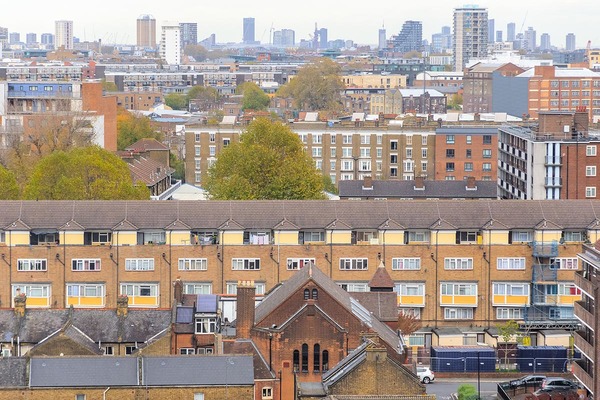You are viewing 1 of your 1 free articles
Housing waiting lists could hit more than two million due to COVID-19, LGA report predicts
Housing waiting lists could hit more than two million due to the economic impact of the COVID-19 pandemic, a report by the Local Government Association (LGA) has said.

The report, which looks into the need for a boost to the number of social rent homes in a post-pandemic world, found that the number of people on council waiting lists could exceed two million in 2021.
The report said that as COVID-related income support schemes wind down, unemployment rises and the government ban on evictions ends, more families will be forced to find cheaper accommodation.
It added that rough sleeping and sofa surfing are also likely to increase.
According to the report, the economic tremors of the pandemic could see the number of people waiting for a social home hit levels similar to that of after the economic crash in 2008 – the previous peak – when the number hit nearly 1.9 million.
The current official number of people on housing waiting lists is just under 1.2 million. But a study by the National Housing Federation in September estimated that that figure could 500,000 short and there could be as many as 1.6 million people waiting for a social home.
The report, titled Building Post-Pandemic Prosperity and authored by the LGA, the National Federation of ALMOS (NFA) and the Association of Retained Council Housing (ARCH) calls on the government to assist with a building boom that would see 100,000 new social rent homes built each year to help deal with the increasing need.
The report said that a social rent “building boom” would not only meet the demand for affordable homes but also deliver a £14.5bn boost to the economy.
It said that the pandemic has already had a disproportionate effect on disadvantaged groups, with households in the most deprived areas seeing mortality rates double that of the least deprived.
Ethnic minorities have also seen their household incomes reduce by a larger percentage than those of white citizens.
The LGA, NFA and ARCH argue that building more social rent homes could help to tackle this inequality and to rescue the country’s construction industry by providing a major pipeline of work.
The report says that the lockdown and social distancing after the pandemic will mean that the construction industry could lose 1.3 million worker years by 2024.
Building more council homes would also save the government money by reducing the Universal Credit and housing benefit bill – by taking the most vulnerable families and people out of the private rented sector, the report said.
David Renard, the LGA’s housing spokesperson, said: “With the number of people on council housing waiting lists set to double, it is absolutely vital that we build more housing for social rent.
“Building 100,000 social homes for rent a year would bring significant social and economic benefits, from tackling our housing crisis and reducing rising levels of homelessness to wiping millions off welfare bills and improving people’s health and well-being while alleviating the pressure on health and social care.
“We are urging government in the Spending Review to give councils the powers to get building at scale again and deliver a housing programme that can play a central role in the national recovery from coronavirus.”
Chloe Fletcher, policy director at the NFA, said: “We can’t stress enough the social and economic value communities get from well-managed publicly owned housing.
“All the evidence shows that councils and those who have ALMO partners are perfectly placed to deliver the wraparound help – with finances, debt, health support, employment and retraining – that so many will desperately need, alongside sufficient good housing, as we recover from the pandemic fall-out.”
Sign up for our Council Focus newsletter
Already have an account? Click here to manage your newsletters











